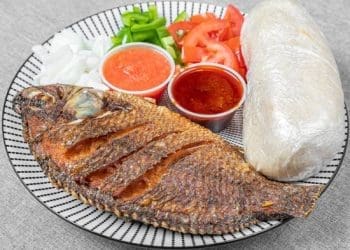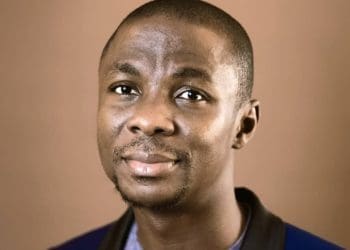Ghana stands for many things, including the acronym ‘Glorious Home All Nations Admire‘ (GHANA). Foreigners admire our culture, or so we think.
We are quick to introduce our foreign visitors to our local languages, and sometimes we excite them by giving them indigenous names, to warm them into our way of life.
In 2014, one of our American foreigners turned the tables on us when he reminded Ghanaians to see English as a local Ghanaian language, rather than a foreign tongue.
Known to unknown
American Gospel Musician Israel Houghton had been in Ghana for only two days and had learnt that English was the language of the average Ghanaian.
The Ghanaian intelligentsia had impressed the Americans with some oratorical brilliance.
So, when a radio host asked him to say one Ghanaian word he had learnt, he waxed lyrical in English and challenged the host to take it in as Ghanaian language.
Usually, visitors to our land, especially caucasians, get away with ‘Ete sen’ for ‘How are you?, and ‘Akwaaba’ for ‘Welcome’. We don’t teach them the naughty ones.
In their place, we play mischief by getting them to promise to sponsor us abroad, by teaching them to say: ‘Mede wo beko America’. Often, the joke falls on us.
Houghton’s Ghana experience was limited to Cantonments and Roman Ridge in Accra.
If he had journeyed a few kilometers into periurban Accra, he would have hired translators to get his greetings across.
In those communities, and in rural portions of all sixteen regions, English is very much a foreign language. Yet the language of instruction in schools is English.
Experts have for years argued that we have recorded poor educational outcomes because we have resisted the implementation of the policy to instruct kids in a local language they understand.
Last week, Education Minister Haruna Iddrisu made a startling announcement to replace English as the language of instruction in our basic schools (KG to Grade 3), with local languages.
The Minister’ script follows the same old friendly argument, as recently intelligently advanced by a distinguished language professor, Kwame Acheampong in the NewsCenta, that “When children hear and use their own language in school, comprehension rises, participation increases, and self-worth grows”.
Children learn from the known to the unknown, the academic posits.
Which local language
Which local language do we start with? What language do kids these days speak at home with their mother, and or, father (mother tongue).
In the case of kids in manicured urban communities who have naturally cultivated the English language through early exposure to technology and association with other kids in school, what is the local language spoken at home?
While their parents may speak Twi, Ewe or Dagbani, these kids may respond to their every instruction in English, because it is the only language they can speak.
That is their local language; it is the language of their environment, and they expect their parents to meet them halfway. They are quick to correct their parents when they mispronounce English words.
For Ghanaian kids living abroad, it is a colonial enterprise.
They tease and forbid their parents from speaking English altogether when they feel the Ghanaian accent undermines the communication of meaning.
Often, there is a clear intention to distance themselves from African English, to buy acceptance from friends who sound posh. Ironically, their parents are happy their kids sound more like the American accent or the British cockney accent, than sound as local as their mates in Techiman or Sanarigu. Ghetto foreign English is better than the Ghanaian dialect.
Global competitiveness
The language scene is messy, interesting, and revealing.
We may not be totally convinced, but we get it when language experts say kids learn better when they are instructed in their local language. To what end?
In the end, we are uncomfortable to admit, is English.
The irony is that the experts who are promoting the local language agenda may not be speaking any local language to their children and grandchildren at home.
They expect the kids to score higher grades in English and Science than in a Ghanaian language.
We wish our kids understood chemical symbols in their local languages, but they would be disappointed to learn that there is no Ewe or Twi word for Zinc or Tetraoxosulphate when they go looking for a job.
The second revealing layer is what my Nigerian friend who lived in Ghana described as ‘things we do for the curriculum’.
His Igbo kids had been struggling with their assignments in Akwapim Twi, and his neighbour, an Akwapim man, offered to help. The kids scored zero.
He fumed: ”How does an Akwapim man teach Akwapim Twi and get zero?”
This peculiar, or perhaps not-too-peculiar Nigerian case, provokes even bigger questions about the teaching of Ghanaian languages and their place of pride in our national life.
We had some very brilliant Twi teachers in our secondary schools, but they prepared students for Banking and Finance, Nursing, or even a foreign language like Chinese. Often, students see the local language as a bother.
The third layer is the poignant revelation that local language teachers have not been seen as those making the case for the policy.
Instead, teachers of the English language and English Literature, including Vice-President Jane Opoku Agyemang, have fronted the campaign.
PAI Obanya, Emeritus Professor of Pedagogy, alerts us to rethink what we have always feared: What is the global competitiveness of our local languages? Well, those fears are still here.
That is why Haruna Iddrisu’s campaign, like the ones before him, might not succeed. Let’s start with printing Twi and Ewe Dictionaries while we teach kids how to spell in English.
Tissues Of The Issues
bigfrontiers@gmail.com
Ottawa, Canada













